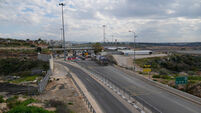ICC justice for Netanyahu? Maybe not — but the arrest warrant still changes everything

Palestinians struggle to get donated food at a community kitchen in Gaza City. Picture: Abdel Kareem Hana/AP
In school, most of us learned about The Hague the way one learns about algebra or Shakespeare — with begrudging reverence.














